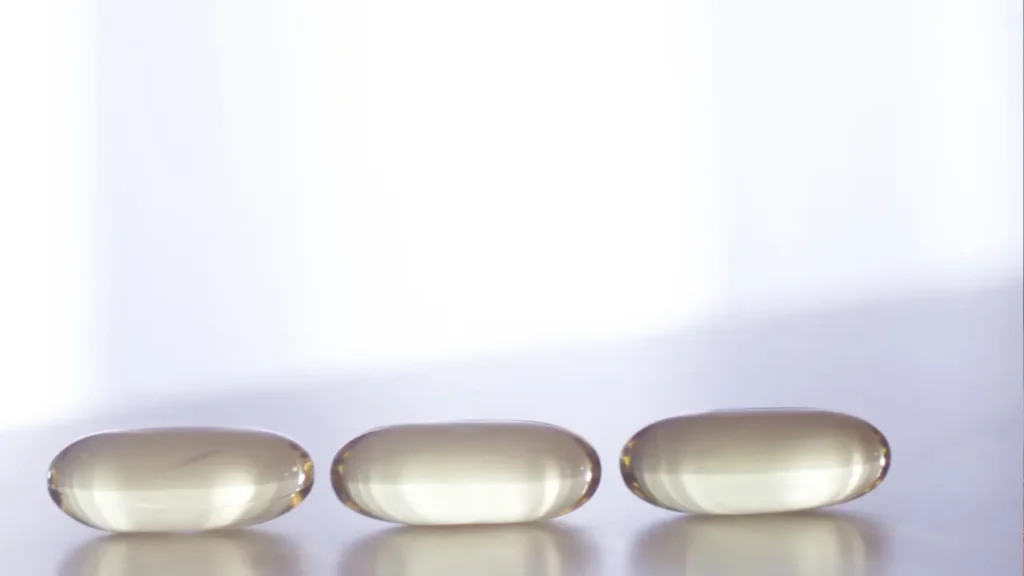The neutral flavor and high smoke point of sunflower oil, which is made from the seeds of the helianthus annuus plant, have made it most popular in cooking a variety of dishes. Beyond the culinary realm, though, sunflower oil has a number of biological characteristics that support its potential use as a nootropic supplement, boosting mental clarity, alertness, and attention. This article explores the molecular makeup of sunflower oil, as well as its health advantages, recommended dosages, side effects, possible drug interactions, and the ways in which it influences the body and brain.
You May Also Like:
Should You Try CBD for Focus? Here Are the Facts.
CBD for Concentration: 3 Epic Benefits that Boost Your Focus
Sunflower Oil: Benefits, Dosage, Side Effects, Drug Interactions, and Other Important Information is an original (NootropicsPlanet) article.
Nature of Sunflower Oil
Helianthus annuus, the sunflower plant, yields seeds that are used to make sunflower oil. This oil is used in a variety of culinary practices due to its mild flavor and light texture. Chemically speaking, it is mostly made up of monounsaturated fatty acids (MUFA) such as oleic acid and polyunsaturated fatty acids (PUFA), of which linoleic acid is the primary type. Significant concentrations of sterols, squalene, vitamin E, and other phytochemicals are also present in sunflower oil, which enhances its stability and health benefits.
Health Benefits of Sunflower Oil
Cardiovascular Health: Sunflower oil is good for heart health due to its high unsaturated fatty acid content. An omega-6 fatty acid called linoleic acid helps lower LDL cholesterol, or bad cholesterol, which lowers the risk of cardiovascular disease. Omega-9 oleic acid improves the ingredients even further by increasing HDL, or good cholesterol. Research has indicated that replacing saturated fats in the diet with unsaturated fats, such as those present in sunflower oil, improves lipid profiles and lowers the risk of heart disease.
Antioxidant Protection and Anti-inflammatory Effects: Sunflower oil is a rich source of vitamin E, a potent antioxidant that shields cells from oxidative stress brought on by free radicals. This defense is essential for avoiding oxidative brain damage, which can result in cognitive loss, as well as for keeping immune systems robust and skin healthy. Furthermore, the antioxidant properties of vitamin E and other components in sunflower oil might lessen inflammation throughout the body, including the brain, which can help to mitigate conditions like Alzheimer’s disease.
Skin Health: The emollient properties of sunflower oil are good for the skin. It enhances skin hydration, inhibits water loss, and preserves the skin’s barrier capabilities. Due to the oil’s high vitamin E concentration, the skin is shielded from environmental stressors like pollution and UV radiation by this antioxidant.
Liver Health: The emollient properties of sunflower oil are good for the skin. It enhances skin hydration, inhibits water loss, and preserves the skin’s barrier capabilities. Because of the oil’s high vitamin E concentration, the skin is shielded from environmental stressors like pollution and UV radiation by this antioxidant.
Cognitive Benefits: Part of the building blocks of brain cells are the fatty acids found in sunflower oil. They are engaged in brain signaling systems and contribute to the fluidity of cell membranes. Sunflower oil promotes efficient neurotransmission, which is necessary for cognitive processes including memory, learning, and problem-solving, by preserving the integrity of cell membranes. Additionally contributing to overall brain health and preventing neurodegeneration are the anti-inflammatory and antioxidant properties.

Chemistry of Sunflower Oil
Linoleic acid, a polyunsaturated omega-6 fatty acid, and oleic acid, a monounsaturated omega-9 fatty acid, make up the majority of sunflower oil. The majority of the oil is composed of these fatty acids, which also give the oil its liquid fluidity at room temperature and contribute to a diet that is balanced in terms of fat intake. Additionally, the oil has lower concentrations of saturated fats including palmitic and stearic acids.
The high concentration of vitamin E in sunflower oil is especially noteworthy because it is a lipid-soluble antioxidant that keeps the oil from oxidizing and prolongs its shelf life. Other phytochemicals found in sunflower oil include squalene, a precursor to steroid production, and phytosterols, which have been demonstrated to strengthen the immune system and reduce the intestinal absorption of cholesterol.
Physiological Properties of Sunflower Oil
Sunflower oil’s physiological benefits are mostly ascribed to the fatty acid composition and vitamin E content of the oil. Sunflower oil’s unsaturated fats support the fluidity of cell membranes, which is essential for healthy cell division and inter-cellular communication. These fats are integrated into the phospholipid bilayer of cells, where they impact membrane-dependent functions that are essential for normal brain and body functions, like ion transport, enzyme activity, and receptor function.
Sunflower oil contains linoleic acid, which is necessary for the synthesis of arachidonic acid. Eicosanoids are signaling molecules that influence immunological responses and inflammation. Conversely, oleic acid can raise levels of high-density lipoprotein (HDL) cholesterol and decrease levels of low-density lipoprotein (LDL), both of which are good for cardiovascular health.
Strong antioxidant vitamin E scavenges free radicals, preventing oxidative damage to biological components. This is particularly crucial for the brain, as oxidative stress plays a role in the onset of neurodegenerative illnesses like Alzheimer’s. Moreover, vitamin E influences the immune system, inflammatory, and platelet aggregation signaling pathways, which adds to the physiological effects of sunflower oil.
These elements cooperate to maintain cellular integrity, lower inflammation, control cholesterol, and guard against oxidative stress. As a result, they improve general health and the performance of several bodily systems, such as the neurological and cardiovascular systems.

Optimal Dosage
The best sunflower oil dose for nootropic effects depends on a number of factors, including dietary fat consumption, metabolism, and general health. Sunflower oil is generally regarded as safe and maybe advantageous when consumed in accordance with dietary guidelines for fat intake, which call for consuming 20% to 35% of total calories from fats each day, with saturated fats making up less than 10%. For an average adult, this equates to two to three tablespoons of sunflower oil each day.
Side Effects
While most individuals can safely consume sunflower oil in reasonable amounts, overindulging in it can have a number of negative effects. They include potential oxidative stress from the oil’s high polyunsaturated fat content if it is used poorly (e.g., by heating it repeatedly), fatty acid imbalances that could counteract the oil’s cardiovascular benefits, and gastrointestinal discomfort including cramps or diarrhea.

Potential Substance Interactions
Vitamin E, which naturally thins blood, is present in sunflower oil and can interact with anticoagulant drugs. Before changing how much fat they eat, patients taking such drugs should speak with their doctors first. Moreover, there is a chance that the high quantity of omega-6 fatty acids would interfere with anti-inflammatory medications, changing their efficacy.
Best Responsible Use
It is important to carefully incorporate sunflower oil into a healthy diet for those who are interested in using it as a nootropic. Stressing the need of maintaining an omega-6/omega-3 fatty acid ratio—found in flaxseeds and fish oils—is essential to preventing pro-inflammatory states that may impede cognitive performance. Sunflower oil must also be kept in good condition; to maintain its healthful qualities, it should be kept in a dark, cold place and not be overheated.
Sunflower Oil:
Conclusion
Sunflower oil, derived from sunflower seeds, serves as both a culinary staple and a health aid. Rich in polyunsaturated fatty acids (PUFAs) and monounsaturated fatty acids (MUFAs), it offers several benefits. PUFAs, including omega-3s and omega-6s, can help reduce cholesterol and triglycerides when substituted for less-healthy fats. MUFAs, found in sunflower oil, contribute to heart health and are akin to those in olive oil, a cornerstone of the Mediterranean diet.
Sunflower oil comes in various forms, with high oleic sunflower oil being popular for cooking due to its stability. Additionally, it is a good source of vitamin E. Some studies even suggest that vitamin E can slow the progression of Alzheimer’s disease. However, it is essential to note that sunflower oil supplements marketed for treating eczema have not been proven medically effective. So, while sunflower oil has its merits, moderation and informed choices are key when incorporating it into your diet or wellness routine.

References:
- Sunflower Oil: Is It Good for You? Retrieved from: https://www.webmd.com/diet/sunflower-oil-good-for-you
- Systemic administration of sunflower oil exerts neuroprotection in a mouse model of transient focal cerebral ischaemia. Retrieved from: https://pubmed.ncbi.nlm.nih.gov/33749789/
- Exploring the Secret Health Benefits of Cold Pressed Sunflower Oil. Retrieved from: https://medium.com/@akshay.moramshetty/exploring-the-secret-health-benefits-of-cold-pressed-sunflower-oil-b3981cdcd073
- Sunflower Oil Supplementation Has Proinflammatory Effects and Does Not Reverse Insulin Resistance in Obesity Induced by High-Fat Diet in C57BL/6 Mice. Retrieved from: https://www.ncbi.nlm.nih.gov/pmc/articles/PMC3441046/
Important Note: The information contained in this article is for general informational purposes only, and should not be construed as health or medical advice, nor is it intended to diagnose, prevent, treat, or cure any disease or health condition. Before embarking on any diet, fitness regimen, or program of nutritional supplementation, it is advisable to consult your healthcare professional in order to determine its safety and probable efficacy in terms of your individual state of health.
Regarding Nutritional Supplements Or Other Non-Prescription Health Products: If any nutritional supplements or other non-prescription health products are mentioned in the foregoing article, any claims or statements made about them have not been evaluated by the U.S. Food and Drug Administration, and such nutritional supplements or other health products are not intended to diagnose, treat, cure, or prevent any disease.


